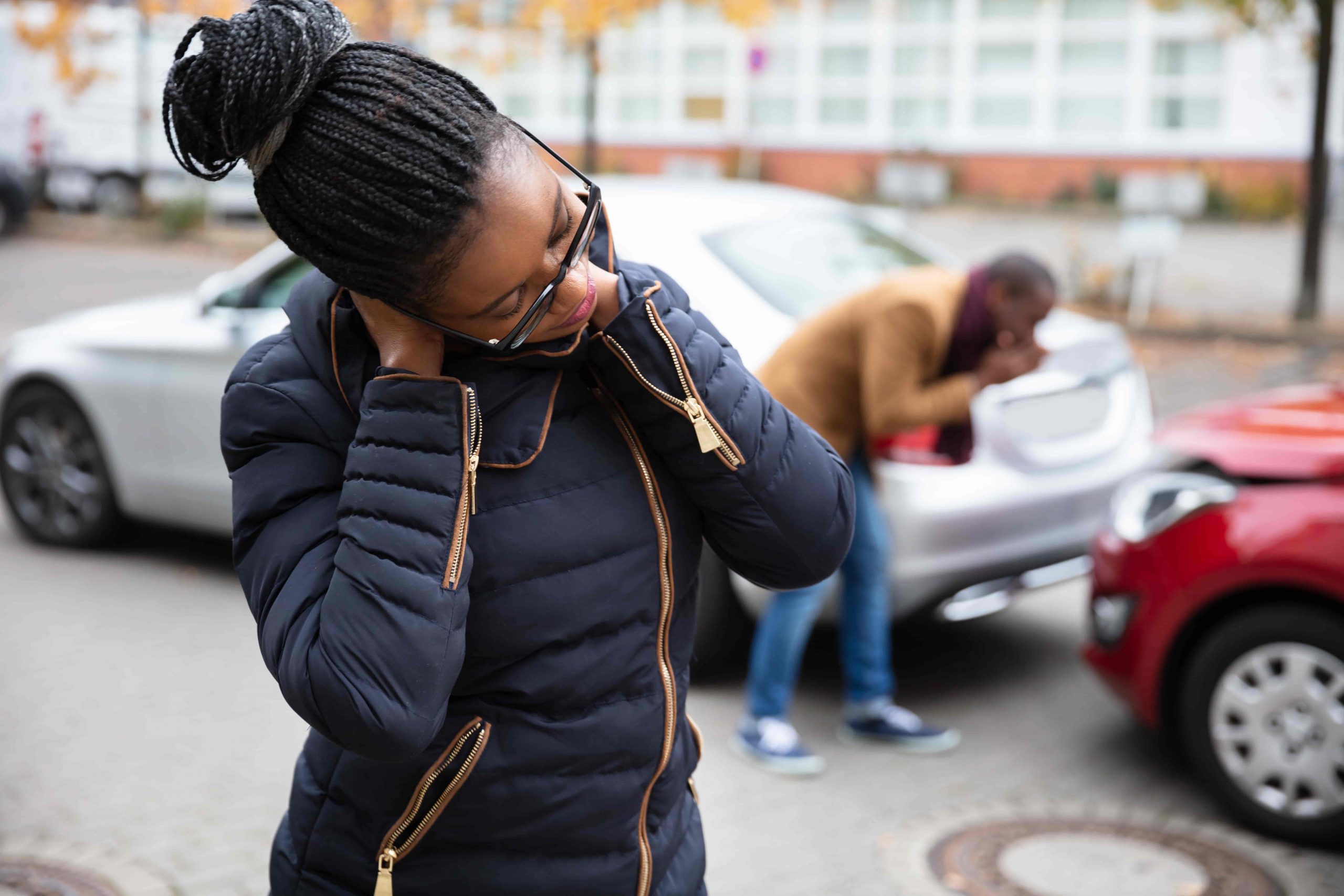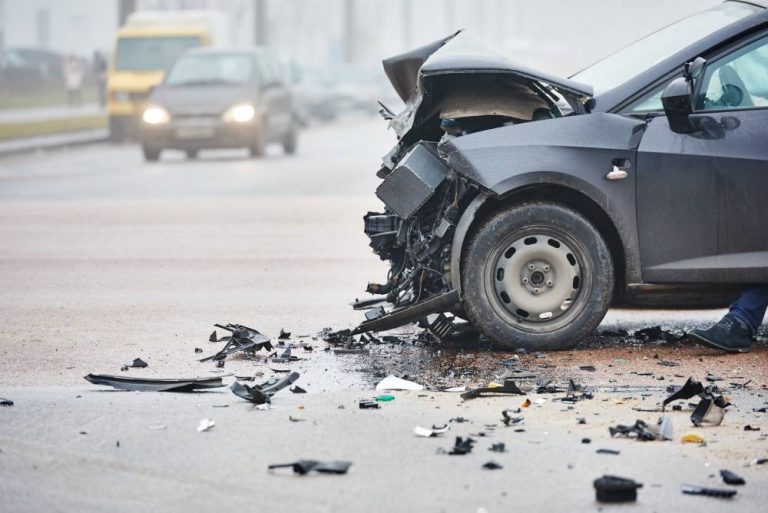Real timelines, hidden delays, and what to expect after getting rear-ended
A rear-end collision settlement typically takes 3–9 months, but complex cases can take over a year. The timeline depends on injury severity, medical treatment, insurance negotiations, and fault disputes. Delays are common—legal help can speed things up and protect your claim.
If you’ve recently been rear-ended, you’re likely asking: How long is this going to take—and what’s next? While the average rear-end collision settlement takes between 3 to 9 months, there’s no one-size-fits-all answer. The timeline depends on your injuries, your medical treatment, the insurance company’s behavior, and whether liability is clear.
In this article, you’ll learn:
- Why some rear-end accident cases settle fast, while others drag on for over a year
- How medical treatment, fault disputes, and insurance company tactics affect your timeline
- What to expect during every phase of the settlement process—from the moment you file a claim to when you receive your check
- How to spot red flags, avoid common delays, and know if your lawyer is actually helping
- And above all, how to protect your financial future by making smart, informed decisions
Let’s break it all down so you can move forward with clarity and confidence.
What to Expect in a Typical Case Timeline
If you’ve been hit from behind, you probably want to know one thing: how long until you get your settlement check? For most rear-end collisions, the answer falls somewhere between 3 to 9 months. But that’s just the average.
Some cases resolve quickly—especially when liability is clear, injuries are minor, and the insurance company is cooperative. These tend to fall on the shorter end of the spectrum, typically 3 to 6 months. But not every car accident is that simple.
If you’re dealing with severe injuries, ongoing medical treatment, or a stubborn insurance adjuster, your case could stretch well past a year. And while it’s tempting to accept the first offer that hits your inbox, quick settlements often mean leaving money on the table—especially when it comes to long-term care, pain and suffering, or future lost wages.
What Factors Affect a Rear-End Accident Settlement?
Several elements come into play when determining the length of a settlement. Let’s dive into the ones that matter most.
Severity of Injuries & Length of Medical Treatment

One of the biggest reasons settlements take time? Injuries don’t heal overnight. Most personal injury attorneys will advise waiting until you’ve reached maximum medical improvement (MMI)—the point when your doctors believe your condition has stabilized. This allows your attorney to calculate the full extent of your medical bills, future care, therapy, and lost wages.
This matters even more for conditions like whiplash, back pain, or soft tissue damage, which can take weeks to show up and months to heal.
“Should I Wait Until I Finish Physical Therapy To Settle?”
And the answer is usually yes. Settling early may lock you into a compensation amount that doesn’t reflect your future needs.
Insurance Company Tactics and Delays
Even when everything seems clear-cut, insurance companies don’t play fair. They may drag out your case with lowball offers, “missing” paperwork, or straight-up ghosting your attorney. Why? Because they’re hoping you’ll get desperate—or confused—and take whatever they offer.
“Is My Insurance Company Intentionally Avoiding My Calls?”
In many cases, yes. This is where legal pressure makes all the difference. A skilled personal injury attorney can hold the insurance company accountable, move things forward, and escalate when necessary.
And while some accident victims are concerned that hiring a lawyer might slow things down, the opposite is often true. The right legal team can cut through red tape, speed up the settlement negotiation process, and make sure you’re not being taken advantage of behind the scenes.
Disputes Over Fault or Liability
In most rear-end collisions, the driver in the back is presumed at fault. But not always.
If the driver in front braked suddenly, had non-working brake lights, or multiple vehicles were involved, liability can get muddy. And when that happens, expect delays.
“Can I Still Get A Settlement If I Was Partially At Fault?”
Yes—but your compensation might be reduced depending on your state’s laws around comparative negligence.
Clear evidence—like dashcam footage, police reports, or witness statements—can make or break your case. The faster these are collected and presented, the quicker fault can be established, helping avoid court and fast-track your car accident claim.
Who You See for Medical Treatment Matters
Believe it or not, who treats your injuries can influence how long your settlement takes. Insurance companies tend to scrutinize chiropractors and alternative care providers more than they do ER doctors or orthopedic specialists. One patient told us their chiropractor visits led the insurer to question whether their injuries were “real.”
If you’re in Florida, there’s also the 14-day rule: you must see a medical provider within 14 days to qualify for Personal Injury Protection (PIP) benefits. But here’s the good news—EMC evaluations can happen after that, giving you more flexibility to get documentation when you’re ready.
Uncover more details in this piece: Florida 14-Day Accident Law | What You Need To Know.
Rear-End Settlement Timeline: What to Expect Step-by-Step
1. Medical Treatment & Documentation

The moment you’re injured, the clock starts ticking—but that doesn’t mean you should rush care just to “speed up” your settlement. In fact, taking shortcuts with your recovery could cost you thousands down the line.
Why? Because your settlement depends heavily on medical documentation. The more complete and consistent your treatment records are, the more legitimate your injuries look to the insurance company—and the more likely you are to get full compensation for medical bills, therapy, and pain and suffering.
If you’re in Florida, you’ve got another deadline to worry about: the 14-day rule.
You must see a healthcare provider within 14 days of the accident to qualify for Personal Injury Protection (PIP) benefits.
But here’s the nuance.
EMC (Emergency Medical Condition) evaluations can still be performed after those 14 days, allowing for a proper diagnosis even if symptoms like back pain or whiplash show up late. That flexibility is exactly why Applebaum Accident Group partners with providers who understand how to document injuries the right way.
2. Gathering Evidence & Case Investigation
While you’re healing, your attorney will be gathering everything needed to prove your case—police reports, medical bills, lost wage statements, photos of the damage, and more. This part can take several weeks, especially if you’re waiting on multiple providers to submit records.
One underused but highly effective strategy? Keeping an injury diary. Write down how you feel each day, what activities you’re unable to do, and how the injury is affecting your job or personal life. It’s not just cathartic—it’s powerful documentation that can help increase your non-economic damages payout.
If you’re working with Applebaum Accident Group, we make sure this process is streamlined by connecting you with professionals who know exactly what documentation insurers expect—and how to build a timeline that holds up under scrutiny.
3. Demand Letter & Negotiation
Once the facts are in, your legal team will send out a demand letter—a detailed breakdown of your claim, your injuries, the damages you’ve suffered, and the compensation you’re seeking. Think of it as your legal opening statement.
But don’t be fooled by what happens next. The first offer is almost always too low. It’s a standard insurance company tactic: lowball early and hope you’ll take the bait.
“Should I Accept A Settlement Before My Car Is Even Repaired?”
The answer: Absolutely not. Settling before you know the full extent of your losses—medical, financial, or property-related—puts you at risk of undercompensation. Once you sign that settlement agreement, there’s no going back.
4. Settlement or Lawsuit?
Most rear-end collisions never see the inside of a courtroom. In fact, over 90% of personal injury claims settle before trial. But in cases where the insurer refuses to negotiate fairly, or when liability is contested, your attorney may need to file a lawsuit to apply pressure.
If that happens, expect your case to stretch by an additional 6 to 18 months, depending on your jurisdiction and court backlog. Urban areas, for example, often move slower than rural courts.
“Will My Bills Go To Collections While I Wait For My Case To Settle?”
Unfortunately, it’s possible. That’s why we recommend working with providers who offer lien-based care, where medical bills are postponed until your settlement comes through. If you’re connected through Applebaum Accident Group, we’ll help you navigate those relationships so you’re not left holding the bag while your case is still pending.
What’s the Longest a Rear-End Settlement Can Take?
So what happens when your case is anything but simple?
If you suffered serious injuries, were one of multiple injured parties, or the case involves commercial vehicles or unclear fault, you could be looking at a 12–24 month timeline. That sounds daunting—but in many cases, it’s worth the wait.
We’ve seen clients with delayed whiplash symptoms settle for significantly more after waiting until their full medical picture came into focus—sometimes over $75,000 more than the original offer. Why? Because their physical therapy, follow-up MRIs, and long-term treatment needs weren’t obvious in the first 90 days.
Still, waiting isn’t always the best move. If your case is clear-cut, your injuries are fully treated, and the insurer is ready to negotiate in good faith, it may be time to settle. A qualified attorney can guide you through that decision—balancing what’s fast with what’s fair.
At Applebaum Accident Group, we don’t just connect you to any lawyer—we match you with one who’s experienced in rear-end accidents, understands Florida law, and knows when to push… and when to close.
What Should You Expect From the Settlement?
A rear-end collision can hit more than just your bumper—it can disrupt your life in ways that go far beyond the visible damage. When you pursue a personal injury claim, your settlement should cover both economic and non-economic damages.
Types of Damages You May Be Compensated For
- Medical bills (both current and projected future treatment)
- Property damage to your vehicle or personal belongings
- Lost wages due to time off work, missed shifts, or inability to return to your previous role
- Pain and suffering, including emotional trauma, chronic discomfort, and changes in quality of life
Attorneys often use a pain multiplier to estimate non-economic damages. This means multiplying your total economic damages (like hospital bills and therapy costs) by a number—usually between 1.5 and 5, depending on how severe and permanent your injuries are. The more disruption the accident causes in your life, the higher that multiplier tends to be.
This is where having a connected legal advocate really matters. At Applebaum Accident Group, we ensure that every factor—from long-term care to daily pain—is accounted for by the personal injury attorney we match you with.
Medical Liens and Hidden Costs
One of the most misunderstood parts of a settlement? What happens after you win.
Many accident victims are surprised to learn that part of their settlement may be used to pay back medical providers or health insurance companies—this is known as a medical lien. If your health insurer paid your bills upfront, they might legally recover those funds from your final settlement.
“Why did my health insurance take part of my settlement?”
It’s frustrating, but not unusual. Your provider has what’s called a right of reimbursement in many states. That’s why clarifying what you’re owed upfront can prevent costly mistakes.
With the right attorney—especially one familiar with PIP, MedPay, and private lien negotiations—you can often reduce these post-settlement deductions and keep more of your award.
Can You Negotiate Medical Bills?
Absolutely—and you should.
If you’ve been rear-ended and your medical bills exceed the at-fault driver’s insurance coverage, negotiation is your best friend. Many providers are open to reducing charges if they know you’re settling a claim, especially when they know they’ll be paid from that settlement.
Attorneys partnered with Applebaum Accident Group often work directly with providers to minimize medical liens and adjust outstanding balances. This ensures that more of your compensation ends up in your pocket, not swallowed by bills.
Don’t Let Delays Cost You What You Deserve
Patience can be hard to maintain when you’re hurting, stressed, and watching bills pile up. But when it comes to rear-end car accident settlements, patience—combined with the right strategy—can be the difference between walking away with a quick check… or walking away with what you’re truly owed.
Every case is unique, but they all follow the same patterns: injury, treatment, proof, and negotiation. What sets strong outcomes apart is how well those steps are handled—and by whom.
If you’re proactive, organized, and supported by professionals who understand both Florida law and the tactics insurers use, you can protect your rights and avoid costly missteps.
✅ Access to Florida’s Best Attorneys: We work with a network of highly skilled personal injury lawyers who specialize in car accident cases. These attorneys have a proven track record of securing maximum compensation for their clients, whether through settlements or courtroom victories.
✅ Free, No-Obligation Case Evaluation: Not sure if you need a lawyer? We’ll arrange a free consultation with an experienced attorney who will review your case and provide expert advice – with no pressure or commitment.
✅ Personalized Lawyer Matching: Every accident is different, and so is every legal case. We match you with an attorney who understands the details of your accident, injuries, and financial concerns, ensuring the best legal strategy for your situation.
✅ Fast, Hassle-Free Process: Don’t waste hours researching law firms. We do the work for you, finding trusted, experienced attorneys so you can focus on your recovery.
Take the First Step Toward Justice
If you’ve been injured in a car accident, don’t wait to seek legal help. Call Applebaum Accident Group today, and we’ll connect you with the right attorney to fight for your rights.
📞 855-225-5728 | Request Your Free Consultation Now
With Applebaum Accident Group, you get support, expertise, and access to Florida’s best attorneys – without the stress. Let us help you find the legal representation you deserve.





